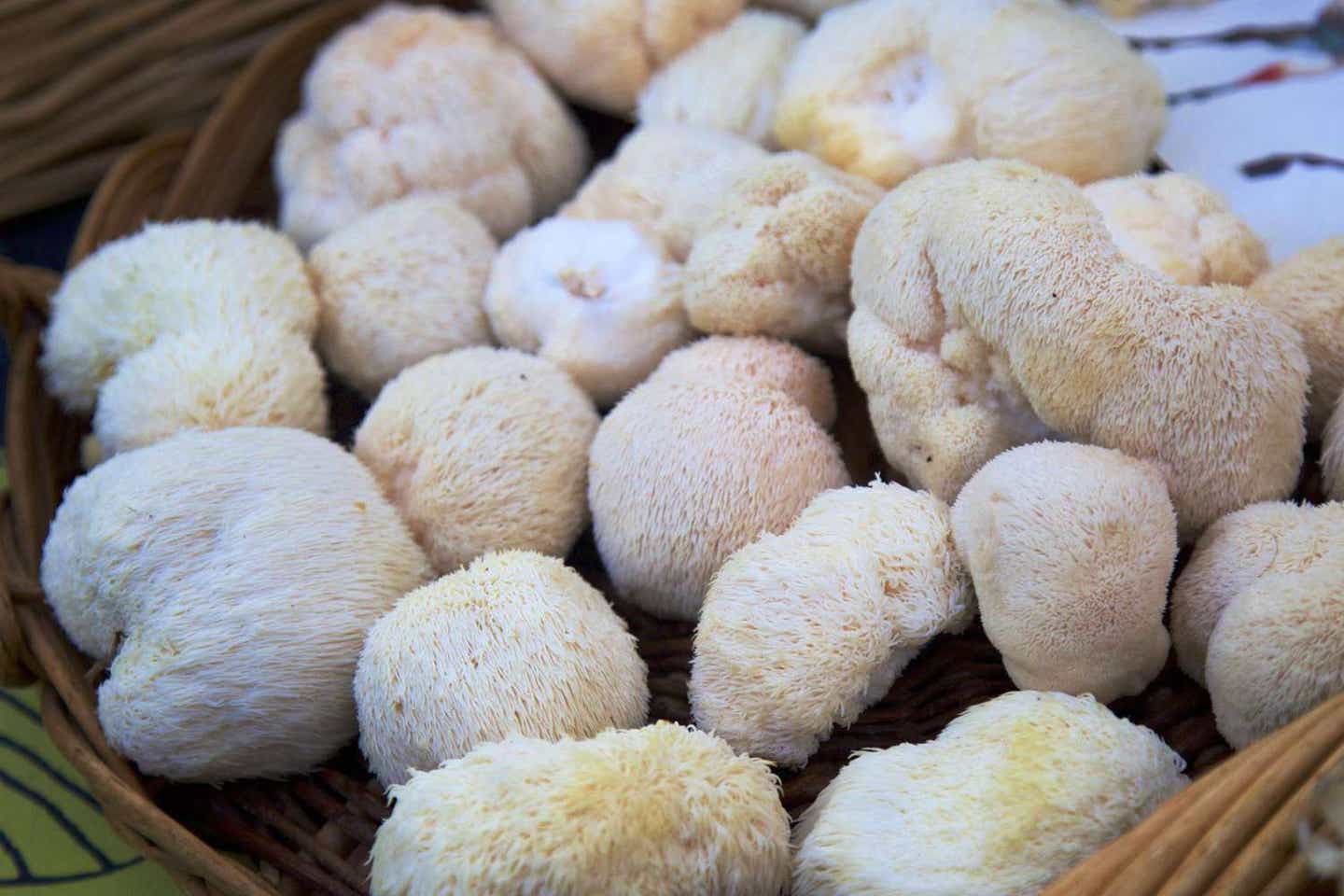Edible mushrooms found to improve memory
Researchers have discovered the active compound from an edible mushroom that boosts nerve growth and enhances memory.

[Feb. 11, 2023: Elaine Pye, University of Queensland]
Researchers found lion's mane mushroom improved brain cell growth and memory in pre-clinical trials. (CREDIT: Bruce Block, Getty Images)
Researchers from The University of Queensland have discovered the active compound from an edible mushroom that boosts nerve growth and enhances memory.
Professor Frederic Meunier from the Queensland Brain Institute said the team had identified new active compounds from the mushroom, Hericium erinaceus.
Researchers have discovered lion's mane mushrooms improve brain cell growth and memory in pre-clinical trials. Image UQ.
“Extracts from these so-called ‘lion’s mane’ mushrooms have been used in traditional medicine in Asian countries for centuries, but we wanted to scientifically determine their potential effect on brain cells,” Professor Meunier said.
Related Stories
“Pre-clinical testing found the lion’s mane mushroom had a significant impact on the growth of brain cells and improving memory.
“Laboratory tests measured the neurotrophic effects of compounds isolated from Hericium erinaceus on cultured brain cells, and surprisingly we found that the active compounds promote neuron projections, extending and connecting to other neurons.
“Using super-resolution microscopy, we found the mushroom extract and its active components largely increase the size of growth cones, which are particularly important for brain cells to sense their environment and establish new connections with other neurons in the brain.”
The traditional medicinal mushroom Hericium erinaceus is known for enhancing peripheral nerve regeneration through targeting nerve growth factor (NGF) neurotrophic activity. (CREDIT: Journal of Neurochemistry)
Co-author, UQ’s Dr Ramon Martinez-Marmol said the discovery had applications that could treat and protect against neurodegenerative cognitive disorders such as Alzheimer’s disease.
“Our idea was to identify bioactive compounds from natural sources that could reach the brain and regulate the growth of neurons, resulting in improved memory formation,” Dr Martinez-Marmol said.
Dr Dae Hee Lee from CNGBio Co, which has supported and collaborated on the research project, said the properties of lion’s mane mushrooms had been used to treat ailments and maintain health in traditional Chinese medicine since antiquity.
Extracts purified from lion's mane mushroom (LMM) exert a neurotrophic effect on growth cone. Hippocampal neurons were cultured in the presence of FBS (5%) for 24 h, the starved until treated with indicated extracts at DIV3. (CREDIT: Journal of Neurochemistry)
“This important research is unravelling the molecular mechanism of lion’s mane mushroom compounds and their effects on brain function, particularly memory,” Dr Lee said.
The study was published in the Journal of Neurochemistry.
UQ acknowledges the collaborative efforts of researchers from the Republic of Korea’s Gachon University and Chungbuk National University.
Note: Materials provided above by University of Queensland. Content may be edited for style and length.
Like these kind of feel good stories? Get the Brighter Side of News' newsletter.



